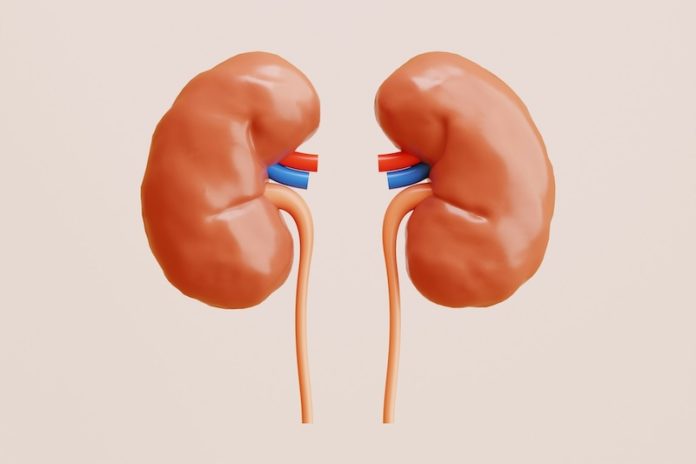
Researchers from the University of Bristol have made a groundbreaking discovery that could significantly impact the treatment of diabetic kidney disease, a serious condition affecting around 40% of people with diabetes.
This finding is particularly crucial for the 4.8 million individuals in the UK living with diabetes, many of whom face the possibility of dialysis or a kidney transplant as the disease progresses.
The study focused on the use of spironolactone, a commonly prescribed blood pressure medication, in treating diabetic kidney disease. Spironolactone is known to reduce the amount of protein that leaks into the urine—a key indicator of kidney damage.
However, its use has been limited because it can cause high potassium levels in the blood, a side effect that can be dangerous, leading doctors to use it cautiously.
The researchers at Bristol aimed to better understand how spironolactone works to protect the kidneys. They discovered that the drug plays a crucial role in preserving the glycocalyx layer, a gel-like coating on the blood vessels in the kidneys.
This protective layer is vital for maintaining kidney health, but it often gets damaged in people with diabetes.
Using kidney biopsy samples from patients, the team developed a new method to measure changes in the depth of the glycocalyx layer.
Their findings confirmed that diabetes causes significant damage to this protective layer, but spironolactone can effectively prevent this damage from occurring.
In addition to protecting the glycocalyx layer, spironolactone was found to reduce the activity of certain enzymes called matrix metalloproteases.
These enzymes can degrade the glycocalyx layer, so by inhibiting them, spironolactone helps preserve kidney function and slows the progression of diabetic kidney disease.
The significance of this discovery lies in its potential to pave the way for new treatments. The research team is now exploring the possibility of repurposing other drugs that specifically target these damaging enzymes.
Their goal is to develop treatments that offer the same kidney-protective benefits as spironolactone but without the associated risk of high potassium levels.
This study represents a major step forward in the quest to develop faster and more effective treatments for diabetic kidney disease.
It provides new hope to millions of people affected by this condition, highlighting the potential for improved treatment options that could prevent the need for dialysis or kidney transplants.
Protecting Kidney Health in Diabetes
For individuals living with diabetes, taking steps to protect kidney health is crucial. Here are some strategies that can help:
- Control Blood Sugar Levels: Maintaining blood sugar within a healthy range is essential to prevent kidney damage and manage diabetes effectively.
- Manage Blood Pressure: High blood pressure is a leading cause of kidney damage. It’s recommended to keep blood pressure at or below 130/80 mm Hg. Medications may be necessary to achieve this target.
- Eat a Healthy Diet: A diet low in salt and saturated fats, and rich in fruits, vegetables, whole grains, and lean proteins, supports kidney health and overall well-being.
- Exercise Regularly: Engaging in at least 30 minutes of moderate exercise most days can help reduce the risk of kidney disease by improving cardiovascular health and managing weight.
- Quit Smoking: Smoking damages blood vessels and increases the risk of kidney disease. Quitting smoking can significantly improve kidney health and overall cardiovascular function.
- Take Medications as Prescribed: Adhering to prescribed treatments for diabetes and high blood pressure is vital for protecting the kidneys and managing overall health.
- Regular Kidney Function Tests: Early detection of kidney damage through regular testing allows for timely intervention and treatment, which can slow the progression of kidney disease.
This research, led by Dr. Matthew Butler and published in JCI Insight, marks a promising advancement in the fight against diabetic kidney disease.
It offers new insights into how existing medications can be repurposed to provide more effective and safer treatments, potentially improving the quality of life for millions of people living with diabetes.
If you care about kidney health, please read studies about drug that prevents kidney failure in diabetes, and drinking coffee could help reduce risk of kidney injury.
For more information about kidney health, please see recent studies about foods that may prevent recurrence of kidney stones, and common painkillers may harm heart, kidneys and more.
Copyright © 2024 Knowridge Science Report. All rights reserved.



